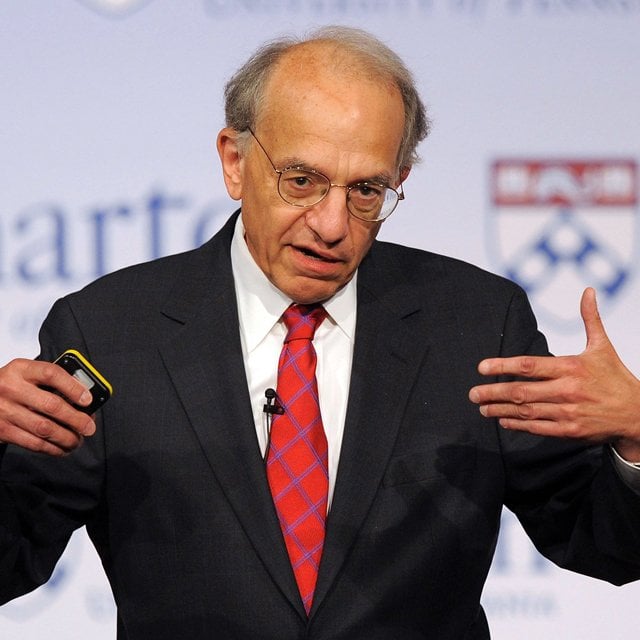Jeremy Siegel: Stock Rally 'No Guarantee' Bear Market Is Over

It’s important to remember that in two of the last three bear markets, “we had 20% bounces similar to the one we just had, but then hit new lows,” the emeritus finance professor from the University of Pennsylvania’s Wharton School said in his weekly commentary for the ETF firm WisdomTree, where he is senior economist.
During the 2008-2009 financial crisis, the market rallied 20% off the November 2008 low “and then plunged to new lows in March of 2009,” he wrote. And after the dot-com bust in 2000, “we rallied about 25% off the lows and then went to a new low right after that,” he added.
“This recent bull market move is no guarantee we are out of the woods from the downturn,” Siegel said. “With that caveat, my feeling is that the October low will hold, but I remain cautious and do not think we have the start of a major up move here.”
Siegel noted that the market this week will digest the latest inflation data, to be released Tuesday, and the Federal Reserve’s decision on pausing or raising interest rates, to be announced Wednesday. His main focus, though, will be the initial jobless claims data to be released Thursday, he said, noting there was a considerable move higher last week.
“Jobless claims are a notoriously volatile indicator,” he said. “And seasonal adjustments could be responsible for some of the increase this week. It is critical to see how serious of a move we have in this series and if this turns into the downturn everyone has been waiting for.”
Siegel expects the Consumer Price Index, a key inflation indicator, “will come in relatively tame,” and that the Fed will pause or skip hikes at its meeting this week, although headlines will likely indicate there was hawkish sentiment.
He said he would bet against any any future hikes, as the approaching political season has created pressure not to create a deep recession.
“I expect a shallow recession that the market has arguably already positioned for,” he added. “The NASDAQ is now selling for 30-times earnings, and the S&P 500 is selling for 20-times earnings. We have small and mid-cap equities selling for 14- and 15-times earnings, with value stocks at heavy discounts, pricing in and largely anticipating a mild recession.”
The stock market might not decline much even as the labor market deteriorates, Siegel wrote, as a weakening labor market has political implications and would put pressure on the Fed, which has a mandate to consider employment as well as inflation.
“That is why I am so focused on jobless claims this week,” he wrote. “Is forcing 2 to 3 million workers out of a job worth an additional tick down in inflation? The Federal Reserve will have to keep re-evaluating this tradeoff.”
Siegel also expects the Fed to consider raising its inflation target to 3% from 2% once inflation normalizes.
“During the heat of the inflation battle itself, it would be politically impossible to give up on its 2% target right now. But there is good theoretical motivation to move the target to 3%,” which would give the U.S. central bank more room to cut rates when it needs to stimulate the economy, he said.
(Photo: Bloomberg)




